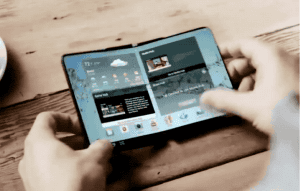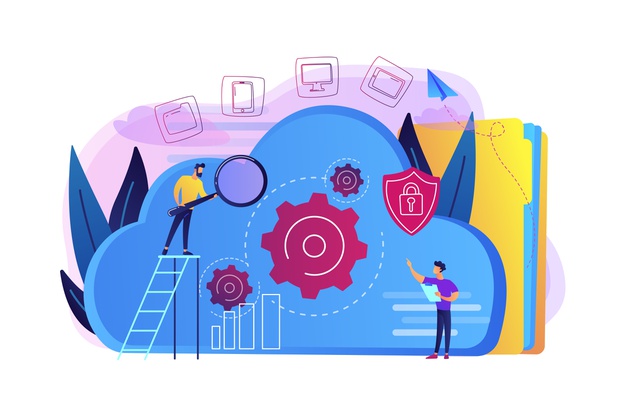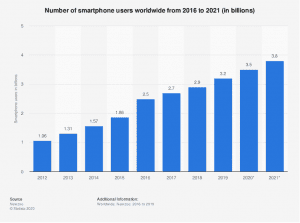Several technologies are on their way to upgrade the mobile app development industry in 2020. In this article, we will share the top five of these trends.
Mobile apps have become our savior in all kinds of situations. Simply to say, they have changed the way we live entirely. There is a mobile app for everything, isn’t there?
Considering the growing need for mobile apps, the industry is working on many new technologies so they could bring some major updates to mobile users and improve their experience. Today, even small businesses understand the benefit of having a mobile app. Moreover, the mobile app development industry has been impacted by advanced technologies such as the Internet of Things, Artificial Intelligence, Chatbots, 5G Technology, mobile commerce, etc.
Your business must have its own mobile app to thrive. To get a unique, mobile responsive, and user-friendly mobile app, connect with companies like Digital Express, Branex LLC, and Inscore today. They are a well-known best mobile app development company, serving clients for years.
Let’s dig deep and discuss the top five emerging mobile app development trends for 2020:
Contents
Apps For Foldable Devices

Thanks to Samsung, we now have a foldable OLED display, and now, to enhance the user experience, operating systems are preparing to use this technology. In 2018, Google announced foldable support on Android devices through using ‘screen continuity’ API.
Samsung made it clear that several apps have been optimized for their Galaxy Fold, such as VSCO, Facebook, Spotify, Twitter, Amazon Prime Video, and MS Office.
Moreover, foldable devices can enhance gaming and video streaming experiences because of the increased screen size. Multi windows will allow users to multi-task. This is considered the most challenging mobile app development trend in 2020.
5G Technology

5G is having some serious impact on Digital Transformation 2021. It is not just the users, but creators, resellers, and developers who also believe that this technology will transform how mobile apps are created and used wholly.
This year is expected to have fifteen times more connections of 5G as compared to previous statistics. Efficiency and speed will level up like crazy. Additionally, it is expected that 5G technology will decrease the latency ten times while boosting traffic capacity and network efficiency. Moreover, it will be a hundred times faster than 4G, but that also depends on the mobile network operator. 5G will enhance the functionality of mobile apps and will enable developers to integrate new features without hurting the app’s overall performance. Mobile app resellers and developers are suggested to use 5G while developing and testing the mobile application.
Internet of Things

It is referred to as a huge network of computing, mechanical, and digital devices that are interconnected and allow the transfer and exchange of information and data. IoT technology in mobile applications promotes remote control of smart gadgets through smartphones. Additionally, mobile applications powered by IoT can connect wristwatches, wearables, and bands to smartphones.
Artificial Intelligence and Chatbots

Machine Learning and Artificial Intelligence have transformed mobile development completely, and it is expected to do wonders in 2020. The integration of artificial intelligence in mobile applications saves money as well as improves user engagement.
Chatbots powered by artificial intelligence are altering the way customers interact with businesses through mobile devices. Mobile applications that are made for services like food delivery, cab services, online shopping, etc. are using chatbots to deal with customers and respond to their queries as soon as they receive them. This is yet another powerful tool to stay one step ahead of your competitors and keep your customers engaged.
Cloud-based Mobile Apps

Storing a huge amount of data is possible because of cloud-based technology. Upon integration with mobile applications, technology improves the app’s storage capabilities and improves productivity and collaboration. Most apps with large databases use Amazon Web Service (AWS). However, in the coming years, there seems to be a rise in cloud-based mobile applications.
M-Commerce

With the increase in mobile device users, the future of mobile commerce appears to be bright and sparkly. Google Wallet and Apple Pay have enabled users to shop through their devices instead of their credit or debit cards. Retail and Commerce businesses today expect applications to allow their customers to shop smoothly and make easy transitions without physical cards or cash.
Wrapping Up

According to research, about 5.1 billion people use cell phones in their lives. if you are building apps using old data, technology, or tools, you are more likely to lose against your competitors.
Source: https://www.statista.com/statistics/330695/number-of-smartphone-users-worldwide/
There are many more trends apart from these five. Make sure you know about each one of them before you develop mobile apps this year. However, you might not need to integrate all technologies, but having a general understanding will help you understand what you are up against in the market.







